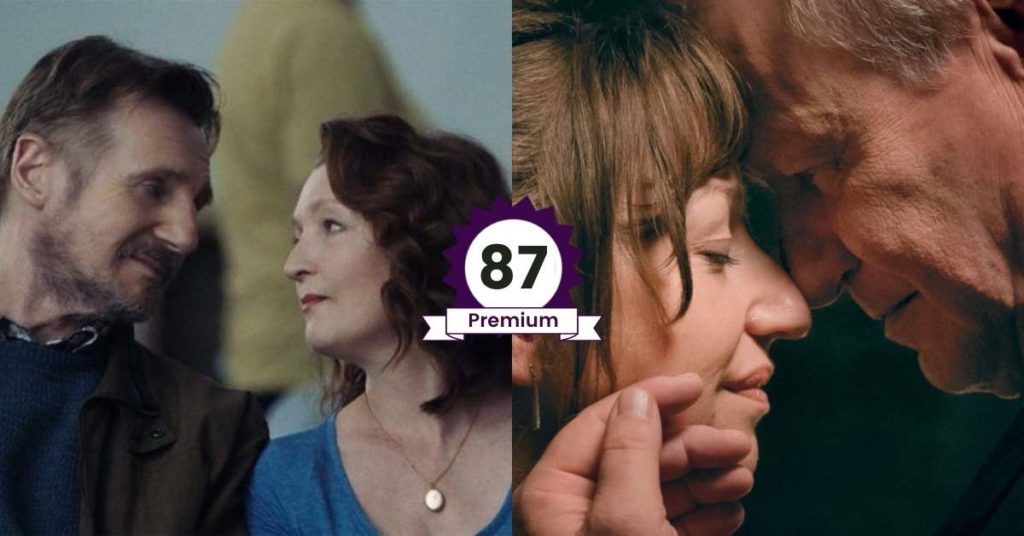We discuss Ordinary Love and Hope, two recent films about couples dealing with a cancer diagnosis. We compare the film’s depictions of relationships, hospitals, and cancer film tropes.
This episode is a Seventh Row members exclusive, as are all episodes older than six months. Click here to become a member.

This episode features Editor-in-Chief Alex Heeney, Executive Editor Orla Smith, and Editor-at-Large Mary Angela Rowe
On this episode
- Why we paired these films (8:02)
- Ordinary Love (10:47)
- Hope (39:46)
- Comparing performances (1:12:43)
Ordinary Love (Lisa Barros D’Sa and Glenn Leyburn, 2019)
The film is a detailed look at how a very ordinary married couple (Joan, played by Lesley Manville, and Tom, played by Liam Neeson) cope with a life-threatening disruption to their amiable married life: Joan finds a lump on her breast, and a series of tests reveal it to be cancerous.
We’re given time at the start of the film to settle into the minutiae of Joan’s and Tom’s life together. The opening shot sees them holding hands as they walk down the pavement and up to a small tree by the roadside, which they circle around before returning back the way they came. It’s evident that this is some kind of tradition so ingrained in their everyday that they don’t even think about it; not a word passes between the two. They’re easy in each other’s company: we then observe them as they watch TV, talking but never looking at each other, because they don’t need to.
Ordinary Love is available on VOD and streaming on Crave in Canada, on HULU in the US, and Binge in Australia.
Hope (Maria Sødahl, 2019)
The week between Christmas and New Year’s proves a crucible for a married couple’s relationship in Maria Sødahl’s smart and sensitive drama, Hope. Unlike most dramas about cancer (including Ordinary Love also at TIFF19), the film is not about the initial diagnosis and treatment; instead Anja (Andrea Bræin Hovig) has already survived lung cancer, but just before Christmas, she discovers the cancer has spread, and surviving this is unlikely. The first bout of cancer is what kept the marriage together after a rough patch; the second diagnosis threatens to split them apart, as Anja starts to unleash all of her pent up anger — not helped by the medication the steroids she’s on, which alter her behaviour.
Throughout this tense but never sentimental film, Anja must reckon with the life she’s chosen and feels is about to lose, worrying most about how her passing will affect her children. At the same time, her husband, Tomas (Stellan Skarsgård) is going through an entirely separate journey: coping with what becoming a single father of six will mean, dealing with his wife’s lashing out without escalating things, and, of course, his own grief. They start on divergent emotional paths, but slowly find their way back to each other.
Hope will be available on VOD on Friday, April 16.
Episode Notes
- Read Orla’s interview with Ordinary Love star Lesley Manville
- Read Alex’s interview with Hope writer-director Maria Sødahl and stars Andrea Bræin Hovig and Stellan Skarsgård
- Read our list of 2020’s best supporting performances
- Read Emilia Rolewicz’s “What Hollywood gets wrong with cancer movies” on Little White Lies
- Listen to our podcast episode on our newest ebook, In Their Own Words: Fiction Directors
- Purchase your copy of In Their Own Words: Fiction Directors now at https://theirownwords.ca
[fusebox_transcript]

